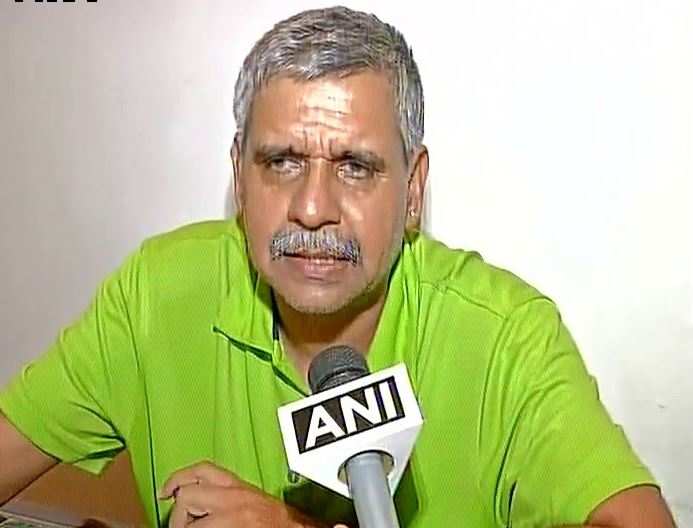News Analysis |
The Congress leader Sandeep Dikshit is under fire for criticizing Indian Army Chief over his recent statement on military operations in Indian-held Kashmir. The army chief stated, “I wish these people, instead of throwing stones at us, were firing weapons at us. Then I would have been happy. Then I could do what I [want to do].”
In another statement, the army chief justified the act of Maj Leetul Gogoi, who tied a man to the bonnet of the army jeep as a human shield against the local Kashmiri stone-throwers. He was of the view that the dirty war in Jammu and Kashmir should be fought with new methods and tactics.
Mr. Diskshit later issued an apology for not using appropriate language for the army chief and took his statement back.
Sandeep Diskhit called Army Chief Gen Bipin Rawat a “sarak ka gunda” (street thug) over these statements. Congress distanced itself from Dikshit’s comment, with party spokesperson Meem Afzal condemning the remarks as shocking and derogatory to the army. “Our party respects army. It is shocking that somebody has uttered derogatory words against the army chief,“ Afzal told Times News.
Read more: Indian army officer who used Kashmiri youth as human shield praised and acquitted
Mr. Diskshit later issued an apology for not using appropriate language for the army chief by saying that it was his personal statement and not his party policy and took his statement back.
The Kashmir uprising and the divide in India
Mr. Sundeep is not the first Indian to criticize his government’s policy in the restive Kashmir. A month ago, senior Indian journalist Prem Shankar Jha stated, “After seeing the condition in Kashmir, I want to die of shame”, adding, “the path we are on, will lead us to hell.”
Another Indian journalist Santosh Bhartiya, in an open letter to Indian Prime Minister Narendra Modi, published on ‘Rising Kashmir’, claims that although “the land of Kashmir is with us, the people of Kashmir are not with us.”
War mongering in Indian media and the fake surgical strikes by Indian forces in Pakistani-administered Kashmir seem to have created an aura of invincibility in the Indian military.
Many other Indian journalists and activists have gone against the Indian state policies in Kashmir. Still, a vast majority of Indians support the brutal crackdown of security forces in Kashmir in which hundreds have been killed and thousands more have been injured or detained since last July.
This has divided the Indian masses and has flamed the nationalistic sentiments which are threatening the liberal outlook of India. The Hindutva groups in India have seen a period of a renaissance under Prime Minister Modi’s BJP government.
War mongering in Indian media and the fake surgical strikes by Indian forces in Pakistani-administered Kashmir seem to have created an aura of invincibility in the Indian military. The flamboyant statement by Indian Army Chief on Kashmir is alarming.
Read more: Indian Army, Navy and Air forces join hands: who is the enemy?
The repercussions of Indian crackdown in Kashmir
The brutal crackdown by Indian forces in Kashmir has exacerbated the state of affairs in the picturesque valley. The killing of Burhan Wani last year paved way for large-scale protests which were brutally suppressed by the Indian forces. The heavy-handed Indian response increased resentment among Kashmiris who have been struggling for independence from Indian rule for decades now.
The current Kashmiri Intifada is indigenous and is free from any outside influence. This indicates that this Kashmiri generation has opted for independence instead of enjoying a special status under India. The Indian reaction to this current wave of protests is careless and brutal. The sudden unrest in Kashmir seems to have caught Indian off guard and indicates that it has failed to appease the Kashmiri population despite investing billions of rupees in infrastructural projects and other economic packages.
Amnesty International accused Indian security forces of using “arbitrary and excessive force” to deal with the protests in Kashmir.
The economic and social devastation as a result of the unrest in Kashmir has ruined the lives of an entire generation. Rates of depression and suicide among young people in Kashmir are astonishingly high. Businesses have closed which have led to economic devastation affecting thousands of families in the region.
International human right bodies have also criticized India over the use of pellet guns, preventive detention and other measures which violate the dignity of man.
Read more: Operation Blue Star: When Sikhs were massacred by the Indian Army
Amnesty International accused Indian security forces of using “arbitrary and excessive force” to deal with the protests in Kashmir. It also stated that their actions were a violation of international standards and were leading to a worsening of the human rights crisis in the state.
Human Rights Watch (HRW) urged Indian authorities to credibly and impartially investigate the use of lethal force in Kashmir.
The Indian heavy-handedness in Kashmir has deteriorated the relationship between India and Pakistan and is threatening the already flaring up ties between the two neighbors.














